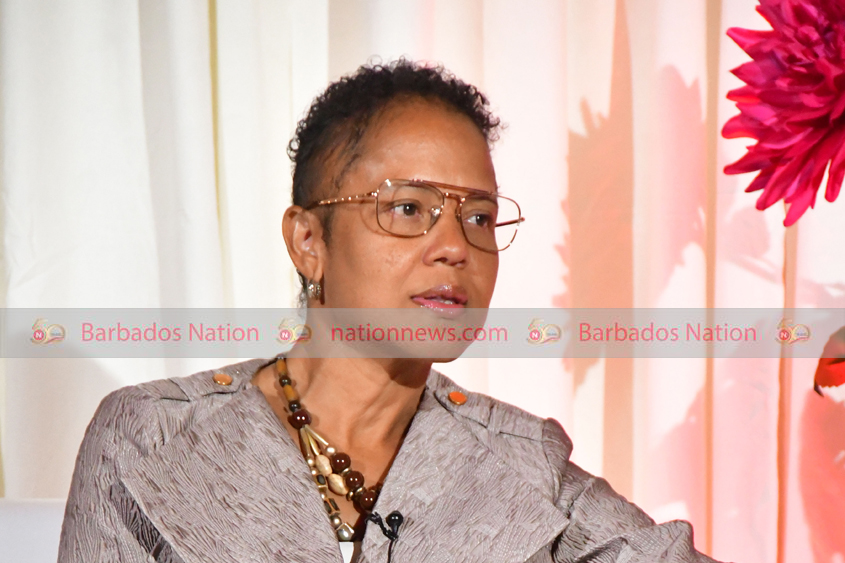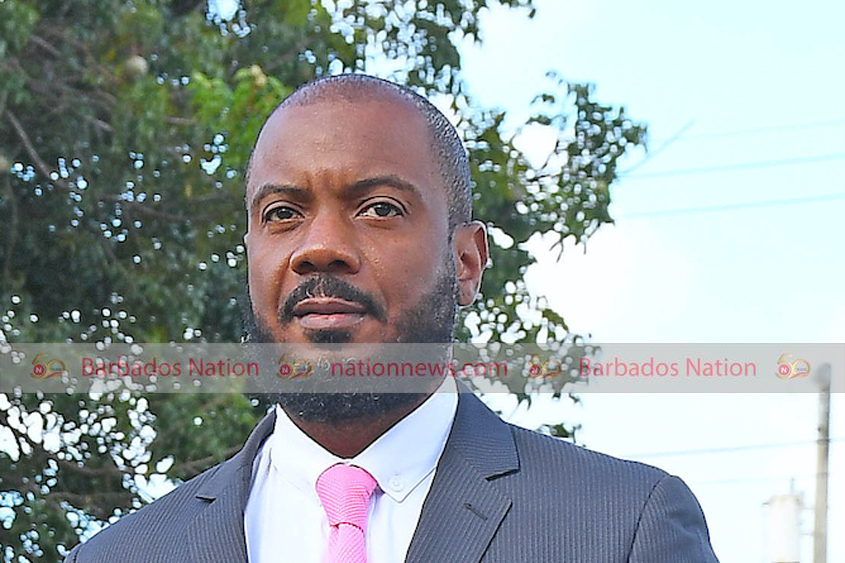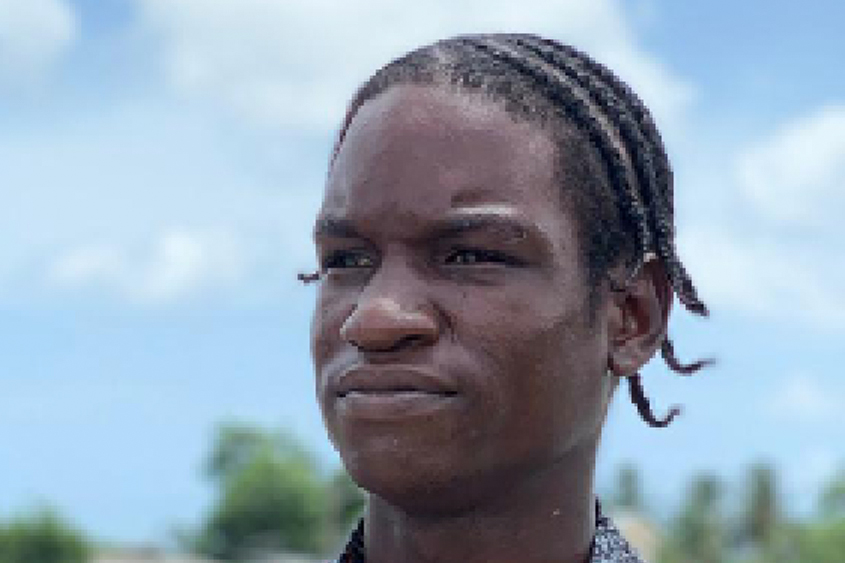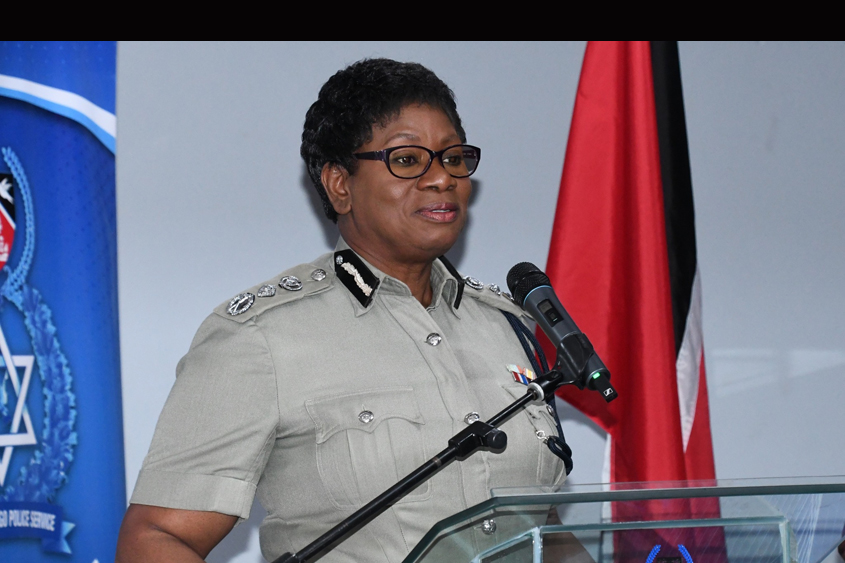

On august 13, 2018, Deputy Prime Minister and Minister of Transport and Works Santia Bradshaw received a call from her doctor informing that she had been diagnosed with breast cancer.
A few days after, at a branch meeting in her St Michael South East constituency, she made her diagnosis known to the people of Barbados.
Throughout her battle, she has received an outpouring of support from both peers and the public, eventually fighting her cancer into remission.
Last Saturday, Bradshaw shared her story as a survivor in a rare and intimate conversation at St Paul’s Conference Centre in Bayville, St Michael.
Speaking among a crowd of survivors and relatives of those lost to the disease, she reflected on her journey – from diagnosis to treatment and the lessons learnt along the way.
When Bradshaw first noticed what appeared to be a lump on her breast, it was on the heels of the 2018 General Election. Her grandmother’s health was deteriorating and her mother also developed signs of dementia, later diagnosed as Alzheimer’s disease.
“There was a lot on my plate at the time in terms of keeping active and keeping relevant. So when I knew that there was a lump that was on my left side, I thought it was fatty tissue and it wasn’t anything cancerous.
“With balancing all these things, I basically put health on the back burner and I said I will go to see the doctor when I finish the election,” she added.
After the Barbados Labour Party (BLP) won the election and took all 30 seats, and three months after becoming Minister of Education, she travelled to Miami to meet with a gynaecologist who confirmed that the lump in her breast was indeed cancerous.
“Everything just went downhill from there. I had to then make a decision as to what do you do at that point when you receive a diagnosis like that. Because the truth is, I actually never thought it could be cancerous, so my whole life changed in that moment in terms of making decisions as to what do you do next.”
After discussing the diagnosis with her family, she made the difficult decision to go public, believing it was important to let the people know what was happening with her.
She first spoke with Prime Minister Mia Amor Mottley, whom she credits for her staunch support and empathy in the face of the diagnosis, telling her: “Don’t worry. We got you. We can get through this.”
One of Mottley’s first displays of support came when she organised a sit-down with Bradshaw and former Deputy Prime Minister Dame Billie Miller, a fellow survivor. Dame Billie supported her decision to go public and reassured her that the prognosis did not have to be a death sentence.
Reflecting on that time, Bradshaw shared that going public helped immensely with her recovery, and left an empowering feeling that allowed her to express the truth of her condition.
While undergoing treatment at the Baptist Health Miami Cancer Institute in Miami, Florida, she maintained her duties as Minister of Education. Each day she would go to the hospital with her laptop in hand and conduct meetings while the nurses and doctors administered the chemotherapy.
“Radiation, for those who’ve been through it, makes you very tired. So there were some days, even when I came back to Barbados and I would go to the ministry, I couldn’t get past two o’clock in the day. I would get tired and feel like I’m falling asleep talking. So I was forced, in terms of my body, in terms of finding balance,” she said.
“Professionally, I wondered how is the public going to view a young MP coming into politics. Now a minister with a huge ministry like education, and how are they going to view my absence from Barbados. How am I going to continue working? I think the best advice that I was given by my doctor in Miami was to keep working through the treatment.
“She told me keep walking, keep exercising, make sure you eat right, do all the things that I was accustomed to doing. But if I felt tired, pause, stop, rest. I was already free inside as to not worry what people thought about what I was going through so there was no shame.
“It was like we got an agenda to get this education system transformed, and that’s what you all sent me to do. That’s what I’m going to do. Whether I’m sick or not,” she added.
Throughout this uncertain time, Bradshaw said she did her best not to fall into fear or despair and turned to faith as a way to stay grounded. The support of her family is also something she also credits for keeping her grounded.
The minister’s decision to seek treatment outside of Barbados was a choice that drew some scrutiny, something which she has longed wished to address.
She explained that the decision to stay in Miami was motivated by several factors. Chief among them was that the recommended round of treatment was not available on the island, and secondly was the support of the medical team which she grew to be comfortable with and ensured a speedy return to her duties at the ministry.
Reflecting on her experience at the Miami Cancer Institute, Bradshaw stressed the need for improvements within the local health care system’s approach to patients with the disease.
“This is a fundamental thing that we are missing in Barbados, where a lot of times I’ve encountered people who don’t actually know what to expect when they’re going through chemo. They are told this is what you have to do, but nobody sits down with you sometimes and goes through the details of how your body will change, how your mind will change. If you’re going to be constipated, what do you take; if you’re going to have a runny stool, what do you use.
“There is a way to deliver treatment to people in Barbados that allows them to be armed with the information. I think we just need to take the time to look at the best practices outside and to find ways now to be able to implement that system within our system as well.”
By sharing her story, she hopes to offer a guiding light to those battling the disease, and also to encourage the public to listen to their body for signs when something is wrong, and avoid placing their health on the back burner.
“I knew that a time would come when I would be able to speak to people in this way from a place of comfort, but also a place where I’ve just lost too many people along the way who were diagnosed too late. And if I don’t say anything as Santia, not as the Prime Minister, the Acting Prime Minister, Leader of Government Business or Minister of Public Works, then I’m doing them an injustice.
“I’m doing the people who are thinking that something is wrong, but aren’t quite sure what to do, an injustice. If I say nothing, if I remain silent, I’m doing the ones who are going through treatment an injustice,” she stated.





